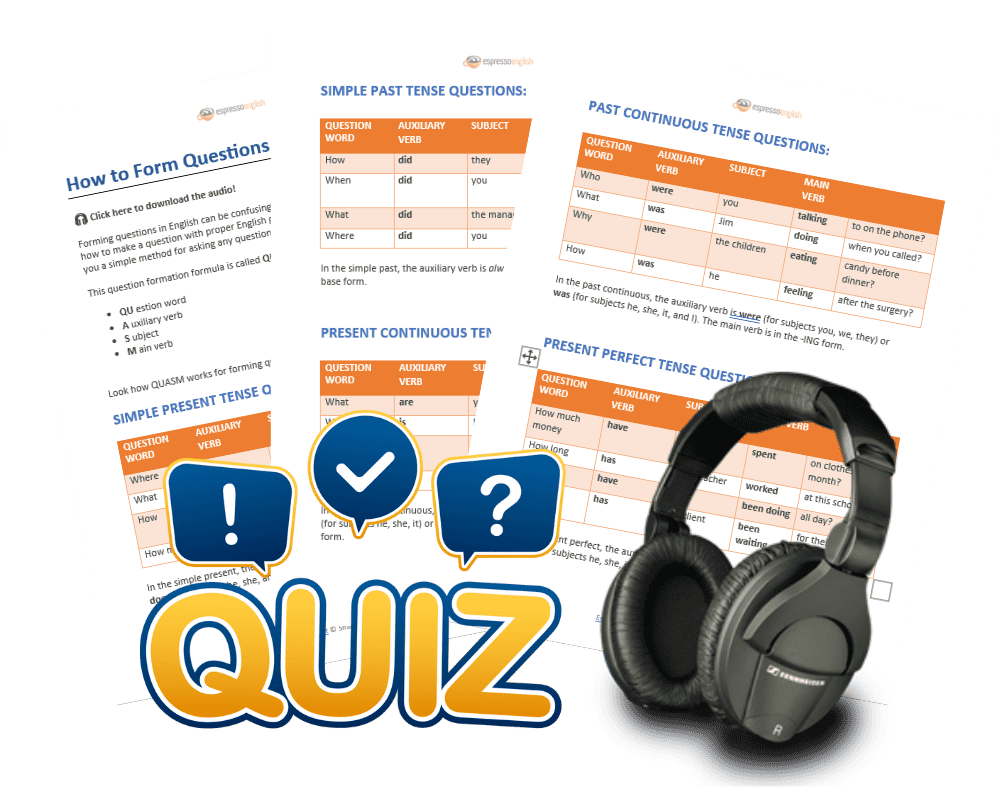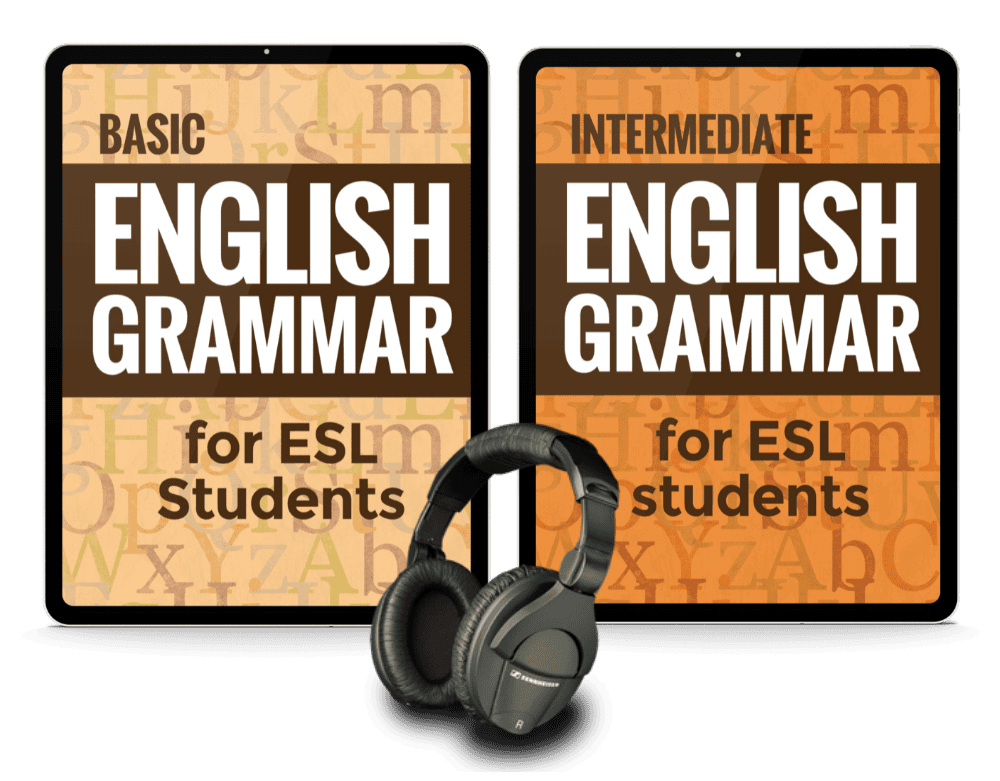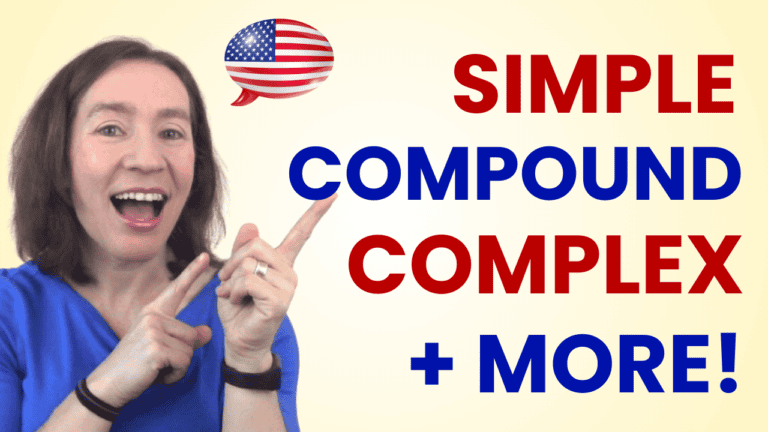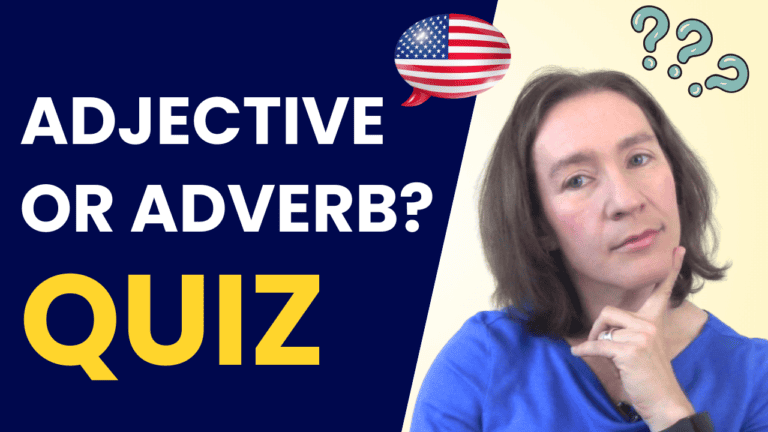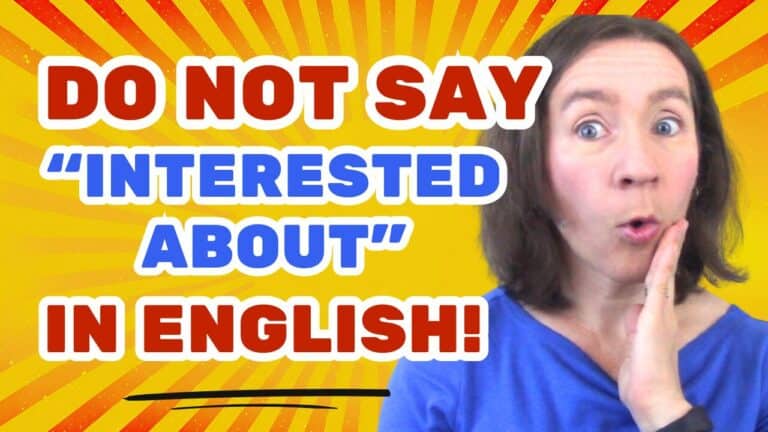
Forming questions in English is confusing.
Lots of English learners wonder how to make a question with proper English grammar. Here’s how!
Today I’m going to teach you a simple method that works for asking any questions in almost ALL the verb tenses.
This question formation formula is called QUASM:
QU estion word
A uxiliary verb
S ubject
M ain verb
Look how QUASM works for forming questions in the following verb tenses:
Simple Present Tense Questions:
| QUESTION WORD | AUXILIARY VERB | SUBJECT | MAIN VERB | |
| Where | do | you | work? | |
| What | does | Martha | think | about the project? |
| How | do | you | like | your new apartment? |
| How many kids | does | Bob | have? |
Simple Past Tense Questions:
| QUESTION WORD | AUXILIARY VERB | SUBJECT | MAIN VERB | |
| How | did | they | learn | English so fast? |
| When | did | you | get home | from work yesterday? |
| What | did | the manager | think | about your idea? |
| Where | did | you | buy | that T-shirt? |
Present Continuous Tense Questions:
| QUESTION WORD | AUXILIARY VERB | SUBJECT | MAIN VERB | |
| What | are | you | doing | at the moment? |
| Why | is | he | ignoring | me? |
| What time | are | we | meeting up | for dinner? |
| Who | is | she | dating | now? |
Past Continuous Tense Questions:
| QUESTION WORD | AUXILIARY VERB | SUBJECT | MAIN VERB | |
| Who | were | you | talking | to on the phone? |
| What | was | Jim | doing | when you called? |
| Why | were | the children | eating | candy before dinner? |
| How | was | he | feeling | after the surgery? |
Present Perfect Tense Questions:
| QUESTION WORD | AUXILIARY VERB | SUBJECT | MAIN VERB | |
| How much money | have | you | spent | on clothes this month? |
| How long | has | your teacher | worked | at this school? |
| What | have | they | been doing | all day? |
| How long | has | the client | been waiting | for their order? |
Future Tense Questions:
| QUESTION WORD | AUXILIARY VERB | SUBJECT | MAIN VERB | |
| Who | will | you | invite | to the party? |
| What | will | your parents | think | about your plan? |
| When | are | you | going | to clean your room? |
| Why | is | she | going | to quit her job? |
Modal Questions:
| QUESTION WORD | AUXILIARY VERB | SUBJECT | MAIN VERB | |
| What | would | you | do | if you had a million dollars? |
| How | could | we | improve | our English? |
| Where | should | I | go | on my next vacation? |
Exceptions to this way of forming questions:
There are exceptions that don’t follow this pattern of question formation.
Yes/No questions do not use a question word…
…but they still follow ASM (Auxiliary verb – Subject – Main verb)
- Do you like bananas?
- Did you enjoy the movie?
- Are you studying English?
- Were you sleeping when I called you last night?
- Have you finished your homework?
- Will you call me when you get home?
- Are you going to accept the job offer?
- Should we take the early morning flight?
Questions where the main verb is “be” also don’t follow the pattern:
- Are you thirsty?
- Is she a teacher?
- Were your parents angry when you failed the test?
- Was her ex-boyfriend a basketball player?
Reported questions, indirect questions, and subject questions also do not follow QUASM.
Now you know how to make questions in English! Any questions for me?
I recommend trying to make a question with each of the verb tenses covered in this lesson. Just follow the QUASM pattern of question formation and you’ll be sure to have correct grammar.
Learn more: 100 answers to common English questions
Quiz: Asking Questions in English
Question 1 |
"Four - Mexico, Argentina, Uruguay, and Chile."
A | What countries you have |
B | How much countries you |
C | How many countries have you |
Question 2 |
"I wanted to look for some better career opportunities elsewhere."
A | Why you |
B | Why you did |
C | Why did you |
Question 3 |
"By tomorrow afternoon at the latest."
A | When are you |
B | When you will |
C | When will you |
Question 4 |
A | Where are we |
B | Where we |
C | Where will we |
Question 5 |
"Her famous chicken soup! You're welcome to join us for dinner later tonight."
A | What your mother was |
B | What was your mother |
C | What were your mother |
Question 6 |
"Maybe because it's a status symbol."
A | Why would anyone |
B | Why anyone |
C | Why anyone does |
Question 7 |
"It looks like they're preparing a presentation."
A | What do Shirley and Dana |
B | What Shirley and Dana is |
C | What are Shirley and Dana |
Question 8 |
"About three times a week."
A | How often you |
B | How often do you |
C | How often you do |


